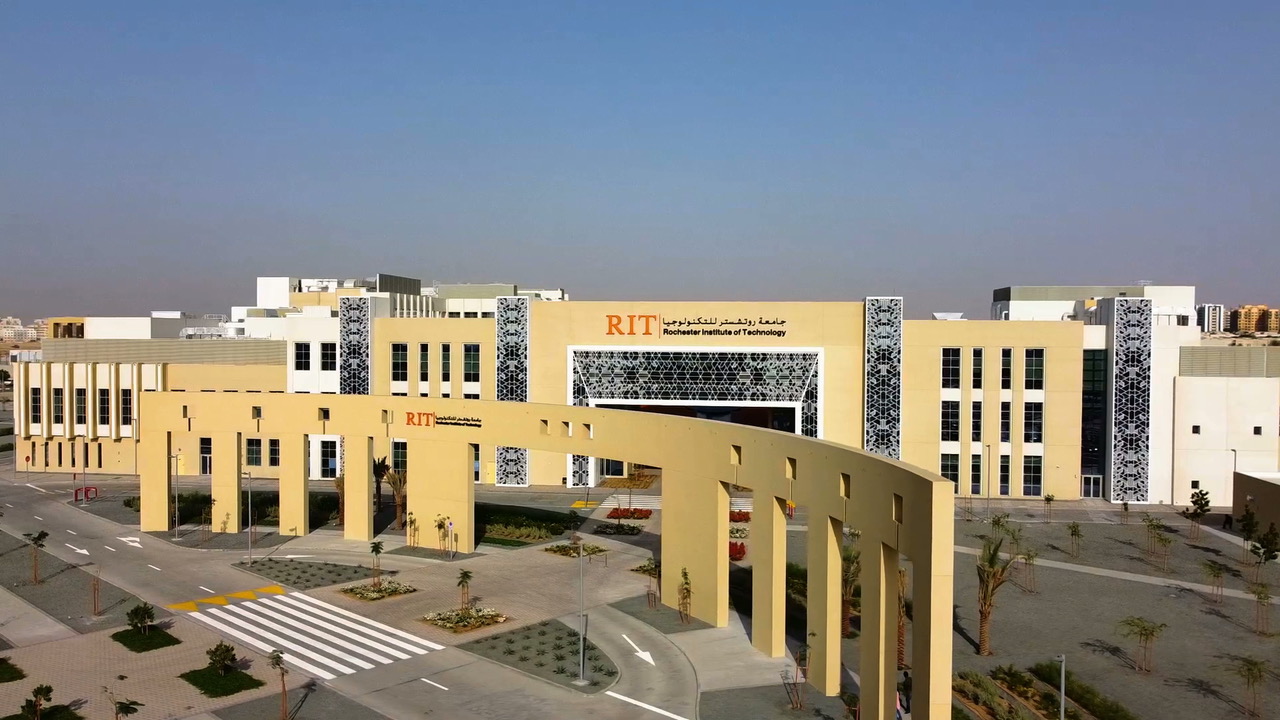A unique and pioneering graduate degree program at Rochester Institute of Technology (RIT) Dubai is training students to combine innovation and creativity with social, technological and human factors, to develop a holistic model for building sustainable smart cities of the future.
A first of its kind in the region, and one of only two such programs anywhere in the world, the Master of Science in Professional Studies: Smart Cities program was launched in response to the Dubai smart city goals, to furnish and support the growth of intellectual capital in the sector.
Dr. Sanjay Modak, Chair of the Graduate Programs & Research Department at RIT Dubai explained, “The MSPS: Smart Cities program is designed to bring together three key elements that make up the city of the future – Sustainability, Technology and Social and Economic factors. The program studies the use of big data, the digital transformation aspect, the funding angle, the public policy effects and sustainability remains an overarching theme.”
Going beyond the basic concept of a smart city, it promotes an interdisciplinary approach to support the vision for technology-driven communities that provide smart services to achieve a balanced and holistic lifestyle. The program addresses key issues such as water, food, waste, transport, education and energy systems, considering the complex interactions between each of the elements and set within the digital transformation of an urban centre into a smart city.
As countries around the world look to develop smart ecosystems in their metropolitan areas, one of the biggest challenges is to boost digital infrastructure and connectivity, while advancing the cities’ liveability and sustainability. The recent plans announced for Expo City Dubai will help position the UAE as a world leader in holistic urban development. The program at RIT Dubai provides the opportunity for graduates and professionals to play a role in these developments, and to take and apply their learning to their own countries.
Alumnus of the program and Market Development Manager for multinational technology firm ABB, Mohamed Gaber, explained, “Perhaps the most important aspect I learnt was the holistic approach to smart city development – something that I believe will be vital as we pursue our future goals in the field. We are all aware of the advancements in technology, energy distribution, and environmental sustainability that are needed to develop successful smart city models, but we must also integrate the social, economic and humankind factors into the process, to ensure that these cities are also lifestyle-driven.”
Mohamed, who was awarded a scholarship to study the program at RIT Dubai, says his degree has helped him to change the direction of his career. He revealed, “I’d been working in the electrification business for over 10 years and seeing the shift in the industry towards smart city ecosystems, I knew that this would be a significant element of my future work. I was able to complete the program on a flexible basis, and as it turns out, it has transformed my career as I now lead the smart city segment within my team.”
As part of his program, Mohamed completed an in-depth Capstone project to define the structure of a smart city operating system, and to create a use-case scenario framework to help operate smart cities in line with the UN’s sustainable development objectives. Managing projects to implement specialized electrification digital solutions, Mohamed is now putting his knowledge to work in his role at ABB.
Dr Modak concluded, “Graduates of this unique program have an all-encompassing view of what it takes to transform urban areas into smart cities and the wherewithal to make them run effectively. They are able to hit the ground running in their organizations, realizing a significant advantage in applying their learning to everyday issues facing cities.”

